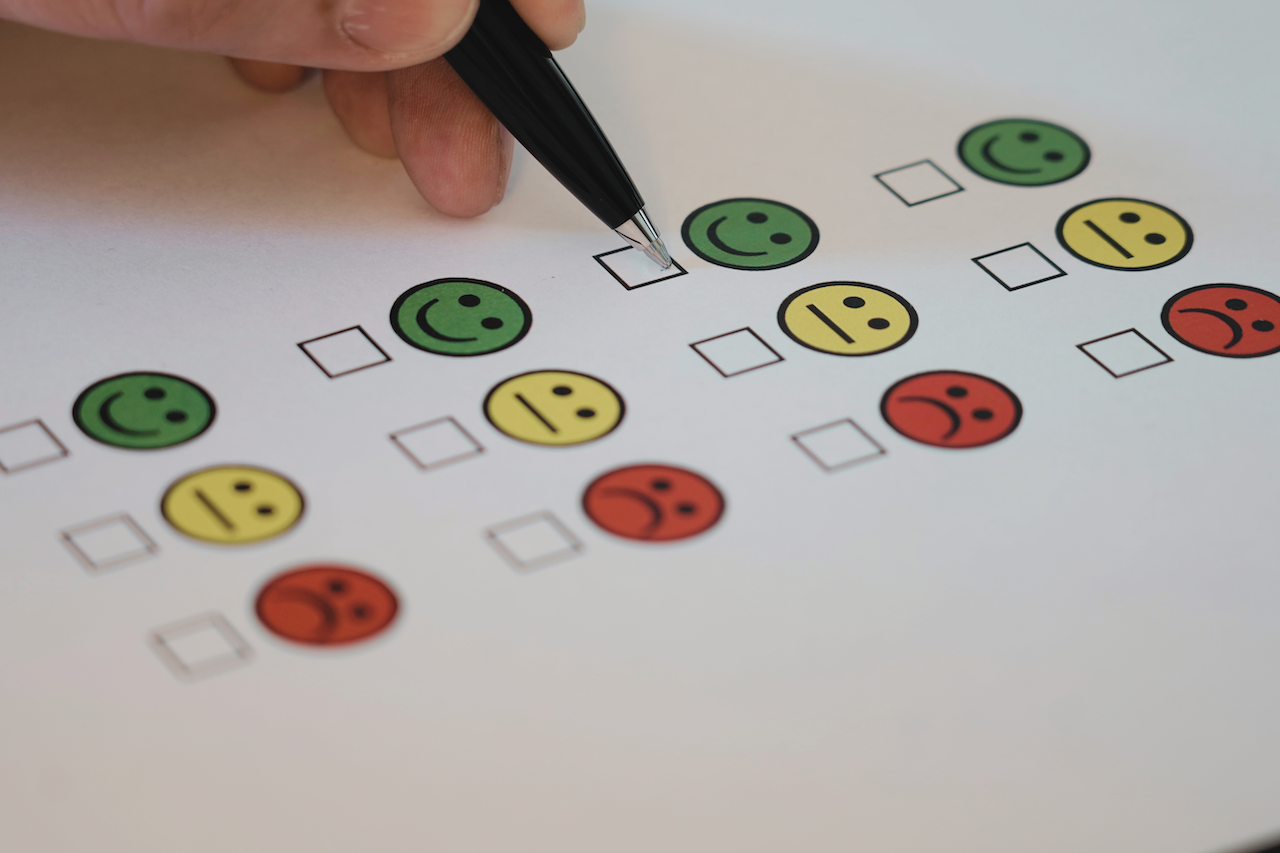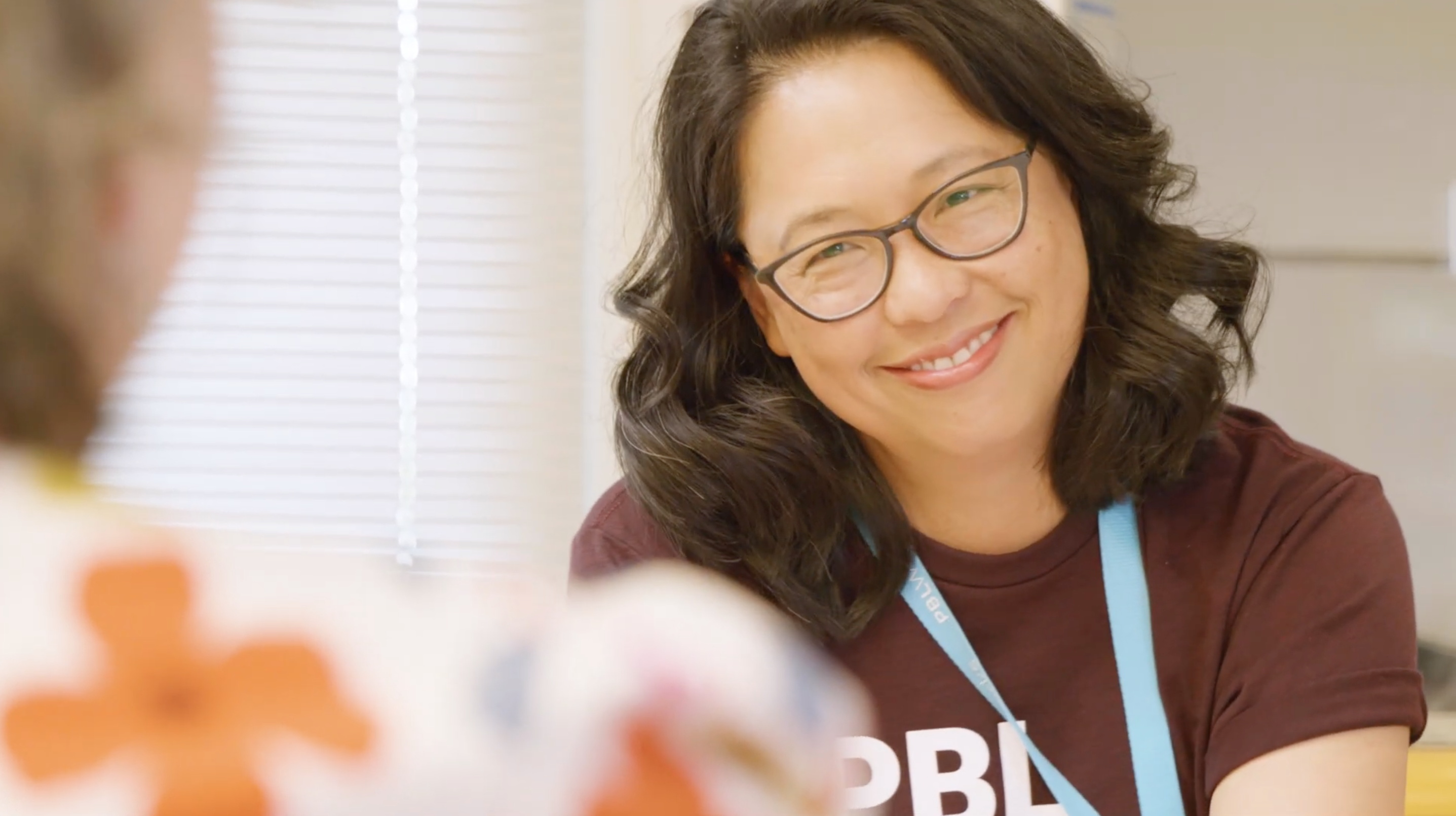
Celebrating AAPI Heritage Month: Members of Our AAPI ERG Honor Their Heroes
As we celebrate Asian American Pacific Islander Heritage Month, AAPI staff reflected on our heroes, and what call to action we have for ourselves and our AAPI community
It wasn’t surprising that our AAPI heroes were in our family. Our families built the foundation to allow us to be here, and to thrive. We are grateful for their love and their sacrifices.
At the same time, we realized that we all have unique stories to be elevated and that we are living AAPI history. And it’s about time that we learn our individual and collective history. We have more in common than we have that divides us.
Ron Rapatalo, Associate Partner
My AAPI hero is my mother, Minerva Guinto Rapatalo. She came to the US in April 1972 with my six siblings from the Philippines. My father was already here in 1970, and he petitioned my family to come months before Marcos instituted martial law in the Philippines.
Her tenacity, her commitment to our family, and her insistence that we don’t forget our culture were instrumental in how I see myself as a powerful Asian-American / Filipino-American. She spoke to me in Tagalog at home so I’d at least understand the language. She worked for over 20 years as a nurse’s aide in graveyard shifts to provide for our family after my father passed away.
Nina Bhatia, Principal
There is a legacy of service that runs through my dad’s side of the family, which is where my Asian heritage comes from. My dad, Harendra Bhatia, grew up in India and was the third youngest of eight siblings. As young adults, Dad’s younger brother, Ramesh, had his engineering degree and wanted to immigrate to the United States for better opportunities. The only issue? Money. So my father went around their village in India on behalf of his brother and somehow managed to put the funds together. Years later, after Dad had also come to the United States and married my Norwegian mother, my parents fell on hard financial times. And so my uncle helped my Dad and our family. My dad never said a word to me about any of this. Neither did my uncle. I learned these stories from members of our family. For my dad and his brother, being of service to others is just part of how they showed care for one another. It wasn’t something to proclaim or explain. I carry this legacy of service with me: show up for other people and support them in ways that they need. It’s love in action.
Serena Moy, Principal
My grandfather on my paternal side (I called him Yeh Yeh) was someone whom I admired in many ways. He came to this country from China, with nothing, at a very young age. I cannot imagine what that must have felt like, moving to a foreign country, not speaking the native language, being thousands of miles away from home and loved ones, not seeing many others who looked like him, and trying to navigate all of this. Despite having little for himself, Yeh Yeh was always generous with his time and his resources, helping neighbors and those in need. He served as a role model for my brother and I.
As a young child, I have vivid memories of spending time with him, while he tried to teach me Cantonese. I so desperately wanted to assimilate into American culture and regret not taking his lessons more seriously. He was always curious and eager to learn new things. Despite his limited education, he made sure that my brother and I prioritized school. I owe a large part of my educational accomplishments to his generosity and belief that an education would provide me with the advantages that he was not afforded in his lifetime.
Emma Chow, Organizational Initiatives Associate
My mother and grandmother (Wai Po) are my two most cherished and admired AAPI heroes. My grandmother fled from Beijing, China from communism to Taiwan where she raised her family. After immigrating to Toronto and then the States, both of these strong, female figures worked relentlessly to provide for our nuclear family in hopes of the “American Dream”. Leaving familiarity to the unfamiliar, learning a completely new tongue, and trying to assimilate to a different culture are only a few themes of their hardship that translated into my Asian-American upbringing. My childhood is filled with memories of my mother coming to my school to teach my classmates about Chinese or Lunar New Year, my sisters and I gathering around my grandmother’s kitchen to make dumplings and soups, and even having Chinese soap operas or news as the background noise provided comfort during our bustling family gatherings. My mother’s and grandmothers’ life experiences, as well as these small moments of togetherness and unity, have reminded me of this: “The good news is nothing lasts forever, the bad news is nothing lasts forever”. My hope for us during this AAPI heritage month is to commemorate each of our unique journeys or stories of resilience, but also celebrate our truly special cultures, traditions, and experiences as a community.
Joy Bao-Dai, Data Intern
My AAPI heroes are my parents. They moved from China to the US in the 90s for graduate school to start a new life abroad. Even though their English was limited then, they persevered in their studies. Later, they had me and my two brothers. Because of our hard work and perseverance, my brothers and I have been lucky enough to grow up with the opportunity to pursue our dreams. Their English now is much better, although slightly accented.
I’ve always known this narrative but didn’t appreciate it until recently.
While studying abroad here in Spain these last few months, I have found myself in a similar situation to the one my parents were in decades ago. Despite studying Spanish in school, I was still unprepared for living and learning in an environment that practically only used Spanish. While my Spanish has improved enough for me to go about daily life without too many issues, I will never forget that initial feeling of not being able to express myself to strangers – it was as if most of my identity was trapped behind the language barrier.
Sometime during my first few weeks here, I remember calling my mom after a tough day to complain. She laughed over the phone, saying, “suck it up, you’ll be just fine… if I did it then you certainly can too.” Her words humbled me. I can’t imagine how difficult and scary it must have been for my parents to not only go to the US but to also stay and start a new life there.
I’ve also come to understand what it feels like to speak a language with a foreign accent; no matter how hard I try to imitate the sounds that the locals make, it feels as if there will always be a part of my tongue stuck in American English. It takes a lot of courage to speak up in class, knowing that I’ll stutter out syllables that sound so different from those of my classmates. I can’t even imagine what it was like for my parents to speak not only in class but also in job interviews and other situations in which how you verbally present yourself significantly impacts the opportunities you receive.
There’s a quote by the actress Amy Chun that says that “a foreign accent is… a sign of bravery.” I used to see my parents’ accents as a sign of a lack of proficiency, but now I realize it is a true testament to their courage to uproot themselves from the familiar and plant new roots in the unfamiliar. They are truly my heroes.
So, my call to action is this: stop judging people for being different from you because what you view as a flaw might actually be a great strength. Especially have some respect and empathy for those who come from other places and are trying their best to fit in. Finally, don’t be afraid to do something new just because you’ll be bad at it. As my mom would say, “You’ll be just fine.”
Team Gallery
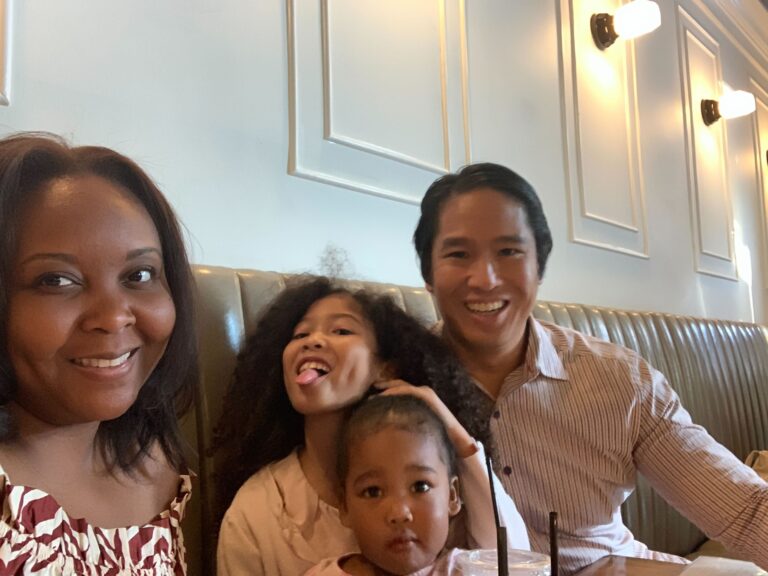
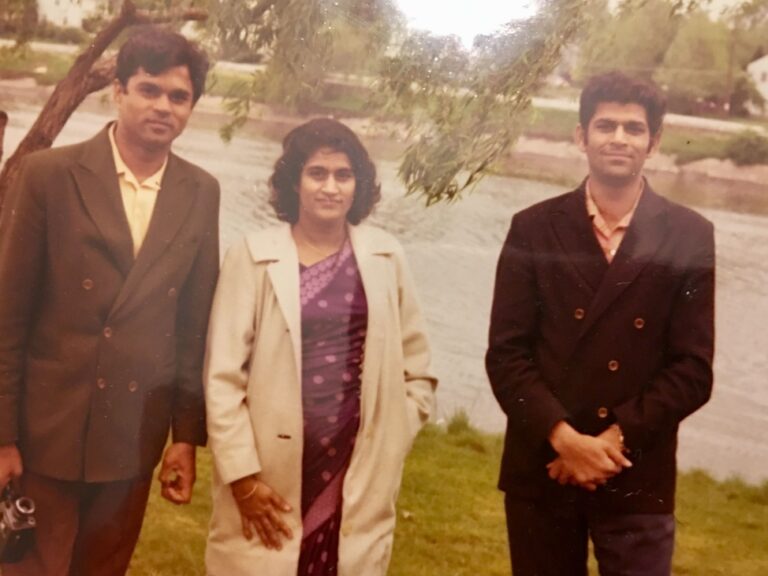
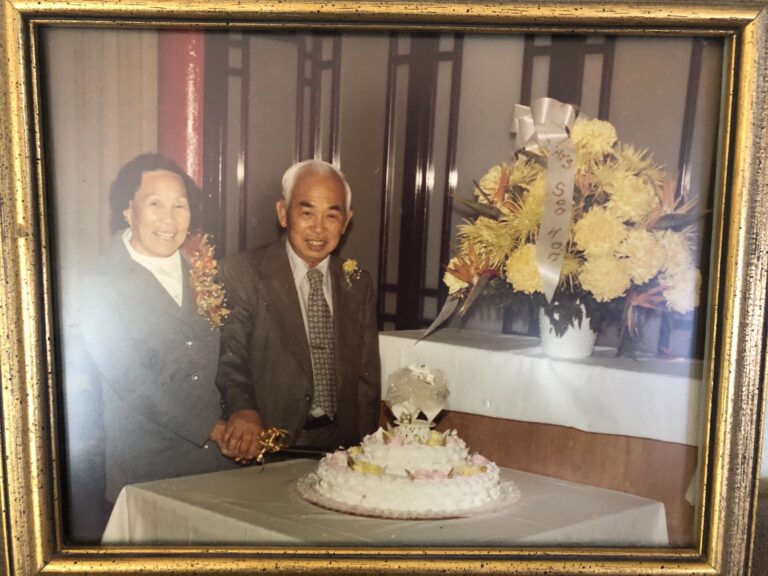

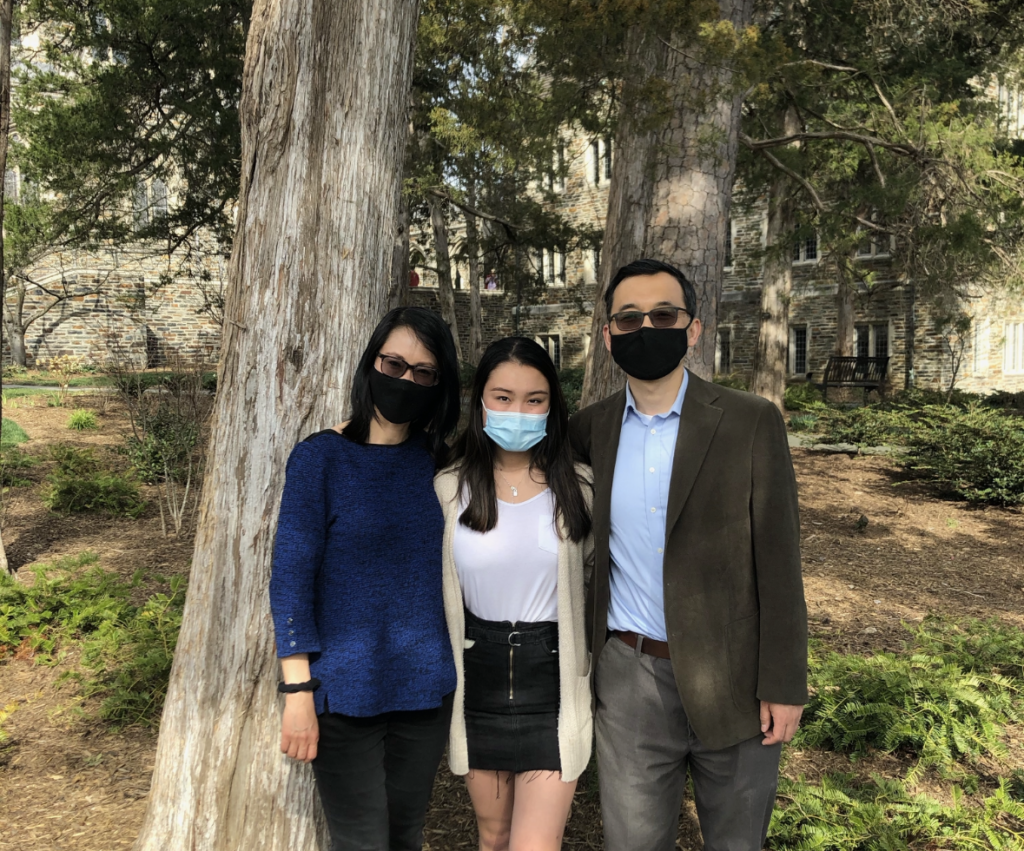
Top: Ron Rapatalo with his wife and two daughters
Middle Left: Nina Bhatia’s father with his siblings
Middle Right: Serena Moy’s grandparents
Bottom Left: Emma Chow with her sisters, mother, and grandmother
Bottom Right: Joy Bao-Dai with her parents




